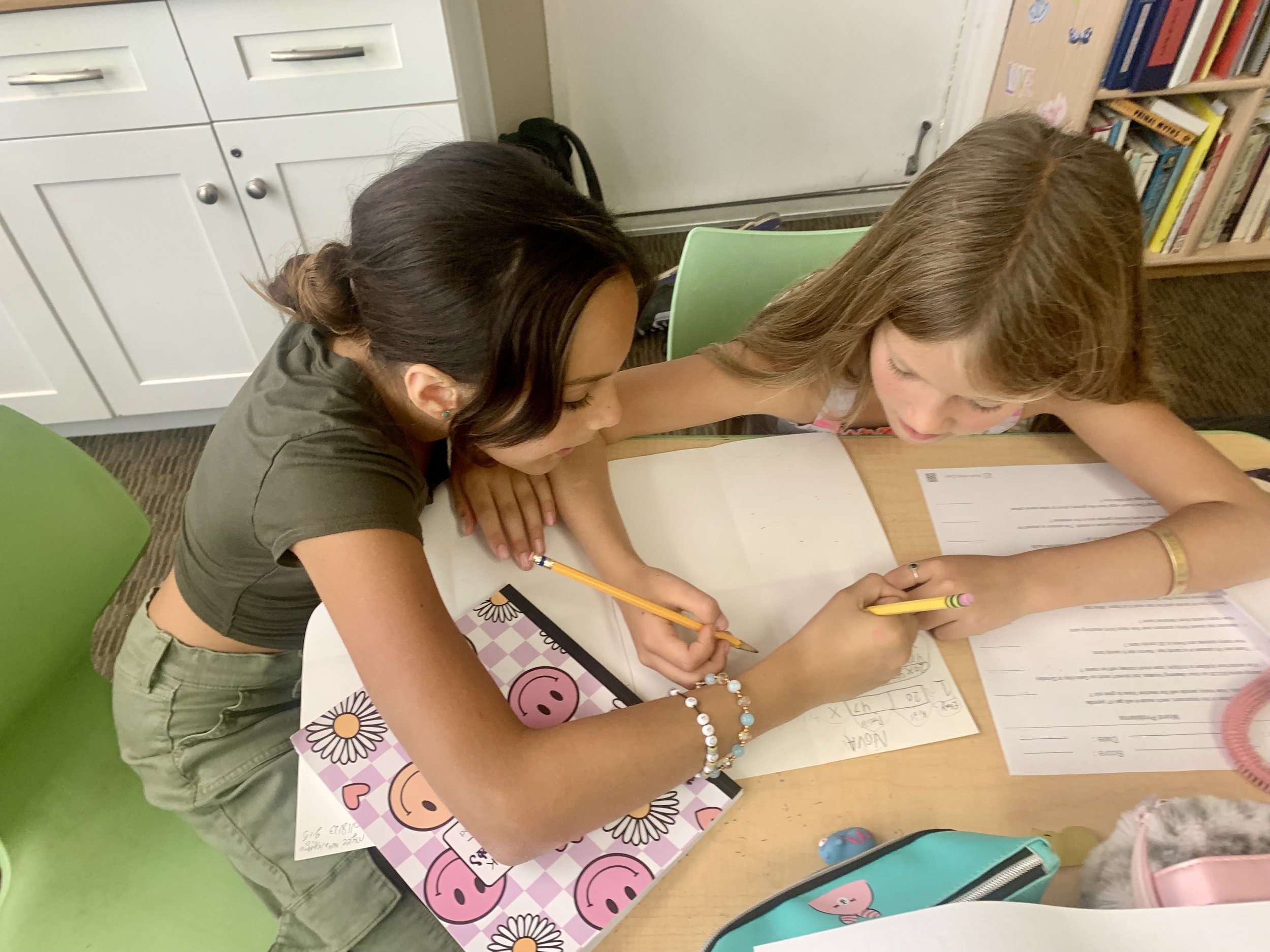Owl Days & Hawk Days: A Unique Weekly Schedule
Our program is divided into four cohorts: Seeds (which includes forest kindergarten, first and second), Roots (3-5), Trunk (6-8), and Branches (9-12). Each phase is thoughtfully structured with a developmentally appropriate approach to learning.
Beginning in third grade and continuing through high school, students experience three days of traditional classroom time, or “Owl Days”, balanced with two days of experiential learning on the land, or “Hawk Days”, each week. On an Owl Day a student might be working on creative writing edits with their teacher in Literacy class or learning geometry in their Numeracy block. For 90 minutes each day, they may be studying geology, astronomy, or botany or delving into a philosophical debate on how human societies organize themselves in our interdisciplinary Humanities-Science block known as “Unit of Study.” On a Hawk Day, each class sets off onto the land surrounding our campus where they may be tracking animals with a naturalist or learning about the fossil record in the Santa Monica mountains.
Our unique blend of indoor and outdoor learning anchors students to this place of rich ecology and natural beauty and gives them the foundational academic skills they need to grasp the challenging issues we face at this pivotal moment in history.
English Language (Literacy)
Manzanita School uses the reading and writing workshop model in grades 1 -12. This model aims to turn students into life-long, confident readers and writers who display agency and independence.
At Manzanita, an emphasis is placed on writing real texts, the kind of texts encountered in the world. Revision is at the heart of every writing unit as we value process over product.
Reading at Manzanita is rooted in developing a love for literature and in thinking about how a book connects to one’s life and issues in the world. Book clubs are utilized to spark conversation and engage students with literary themes.
Core Science-Humanities
Beginning in grade 2, Manzanita School’s science/humanities core course provides scoped and sequenced studies in Earth Systems Science, Cultural Change, and Big History.
This course is taught daily for 90-minutes, throughout the year. It covers a range of topics from Environmental Ethics, to Atmospheric Chemistry, Human Prehistory, History of Science, Systems Theory, Plant Botany, Indigenous Systems of Thought, and Environmental Science.
Our Nature Connection and Stewardship programs compliment and connect to Manzanita’s core science/humanities curriculum.
Mathematics (Numeracy)
Mathematics at Manzanita is focused on developing students’ understanding and skills in ways that produce life-long mathematical power.
Our curriculum emphasizes the use of concrete, real-life examples that are meaningful and memorable as an introduction to key mathematical concepts and the use of multiple methods and problem-solving strategies to foster true proficiency and accommodate different learning styles. To connect mathematics to our core science/humanities curriculum, we create walkable timelines, so students have an embodied experience to help them understand large numbers, ratios, and the vastness of time.
The Arts
The Arts at Manzanita exposes students to a range of experiences that are both educationally sound and experientially dynamic.
It is an extensive program that can include courses such as Ceramics, Aerial Arts, and Individualized Passion Projects. Students have an opportunity to experience a wide range of offerings and are also enrolled in a once a week visual arts course.
The classes are taught by experienced teachers who have both passion and knowledge about their subjects.
Outdoor Studies
A relationship to nature is a critical nutrient for living a full and meaningful life. Therefore, students spend 40% of their learning time in nature, engaged in our three experiential outdoor programs.
Council and Gratitude
At the beginning and end of almost every day, all students enter ‘council’ with their respective class. This practice is a powerful anti-bullying process, which allows all voices to join a community through individual stories.
Council has roots in indigenous systems of conflict resolution and governance, and leads to practices of Restorative Justice for the resolving of issues, instead of retributive or punitive justice.
We close every school day with gratitude. All of our staff have been trained in leading Council and in Restorative Practices through Circle Ways.
Council encourages and teaches deep listening and personal storytelling.
“Teachers provide students with real world applications of knowledge and differentiate their instruction to ensure a challenging level of study for each student.”
— WASC, 2017 —








